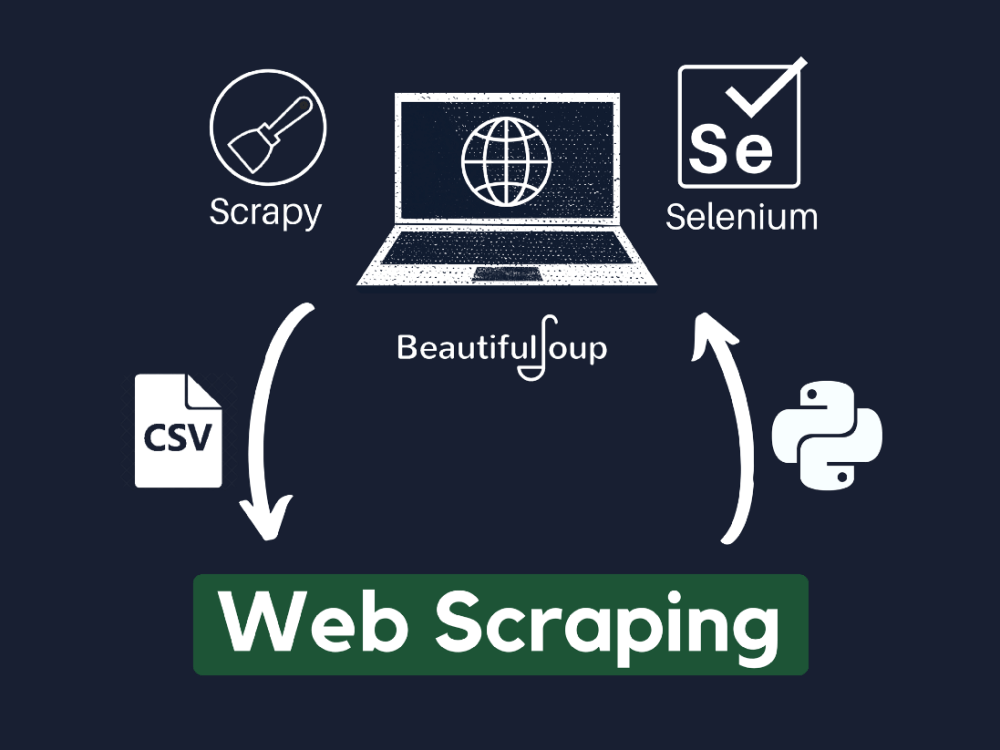
Web scraping is a powerful technique for extracting data from websites, but it often comes with its own set of challenges. From dealing with dynamic AI Powered Web Scraping content to navigating legal restrictions, these obstacles can complicate your scraping efforts. In this article, we’ll explore some common challenges faced by web scrapers and provide practical tips and tricks to overcome them.
- Handling Dynamic Content
One of the most significant challenges in web scraping is dealing with dynamic content, which is often loaded via JavaScript. Many modern websites utilize frameworks like React, Angular, or Vue. js to render content dynamically, making it invisible to traditional scraping methods.
Tips to Overcome This Challenge:
Use Browser Automation Tools: Tools like Selenium and Puppeteer allow you to automate browser interactions. They can execute JavaScript, rendering the complete webpage and allowing you to scrape the dynamically loaded content.
Inspect API Endpoints: Often, the data displayed on a webpage is fetched from an API. Use browser developer tools to monitor network requests when loading the page. If you can identify the API endpoints, you can directly access the data in a more structured format, bypassing the need for scraping altogether.
- Website Structure Changes
Websites frequently change their layout and HTML structure, which can break your scraping scripts and require constant updates.
Tips to Overcome This Challenge:
Build Resilience into Your Scraper: Design your scraper to be adaptable. Use more general selectors (like classes that are less likely to change) rather than absolute paths in the DOM. This can help your scraper tolerate minor changes in structure.
Regular Monitoring and Alerts: Implement a monitoring system that checks if your scraper is functioning correctly. Set up alerts to notify you of failures or significant changes in the data structure, so you can make necessary adjustments quickly.
- Rate Limiting and IP Blocking
Frequent requests to a website can trigger anti-scraping measures, resulting in your IP address being blocked or restricted. Many sites implement rate limiting to prevent abuse.
Tips to Overcome This Challenge:
Implement Rate Limiting: Space out your requests by introducing delays between them. Use libraries that allow you to define a crawl rate that mimics human behavior, reducing the chances of being flagged as a bot.
Use Proxies: Rotate IP addresses by using proxy servers. This distributes requests across multiple IPs, minimizing the risk of getting blocked. Services like Bright Data or ScraperAPI can help manage proxies effectively.
- Data Quality Issues
Scraping data can sometimes yield inconsistent or incomplete information. Issues such as missing fields, incorrect formatting, or duplicate entries can arise.
Tips to Overcome This Challenge:
Data Validation and Cleaning: After scraping, implement data validation techniques to ensure the quality of your data. Use libraries like Pandas in Python to clean and manipulate your datasets, removing duplicates and correcting errors.
Regular Updates: If the data changes frequently, set up a schedule for your scraper to run at regular intervals to ensure you are collecting the most up-to-date information.
- Legal and Ethical Considerations
Navigating the legal landscape of web scraping can be complex. Different websites have various policies, and data privacy regulations can impact your scraping activities.
Tips to Overcome This Challenge:
Review Terms of Service: Always check the Terms of Service of the website you intend to scrape. Ensure you are compliant with their rules to avoid potential legal issues.
Respect robots. txt Files: Before scraping, check the robots. txt file to understand which parts of the site are allowed to be scraped. Respecting these guidelines can help you avoid conflicts with site owners.
Collect Data Ethically: Avoid scraping personal or sensitive information unless you have explicit consent. Being transparent about your data practices fosters trust and protects you from legal repercussions.
- Captchas and Anti-Scraping Technologies
Many websites employ Captchas or other anti-bot technologies to prevent automated data extraction, making scraping difficult.
Tips to Overcome This Challenge:
Use Captcha Solvers: There are services available that can help solve Captchas for you. Services like 2Captcha and Anti-Captcha can be integrated into your scraping workflow, allowing you to bypass these obstacles.
Simulate Human Behavior: Incorporate human-like behavior in your scraping scripts, such as random mouse movements or scrolling actions. This can help you avoid detection by anti-bot systems.
Conclusion
While web scraping can present several challenges, understanding these obstacles and implementing effective strategies can make the process smoother and more efficient. By leveraging the right tools, adopting best practices, and maintaining ethical standards, you can overcome common hurdles in web scraping. As you gain experience, you’ll become more adept at navigating the complexities of data extraction, turning challenges into opportunities for insightful data collection. Happy scraping!